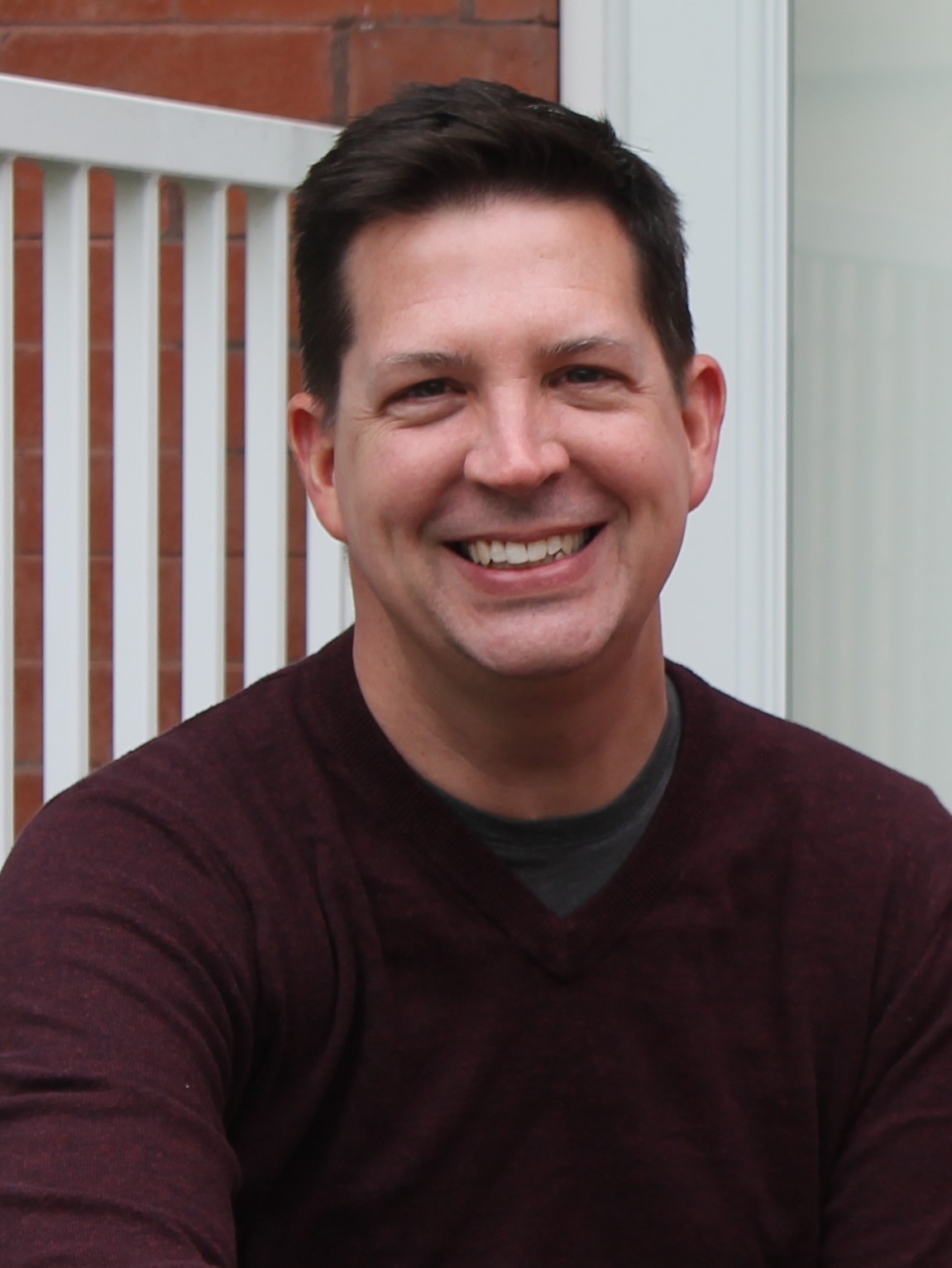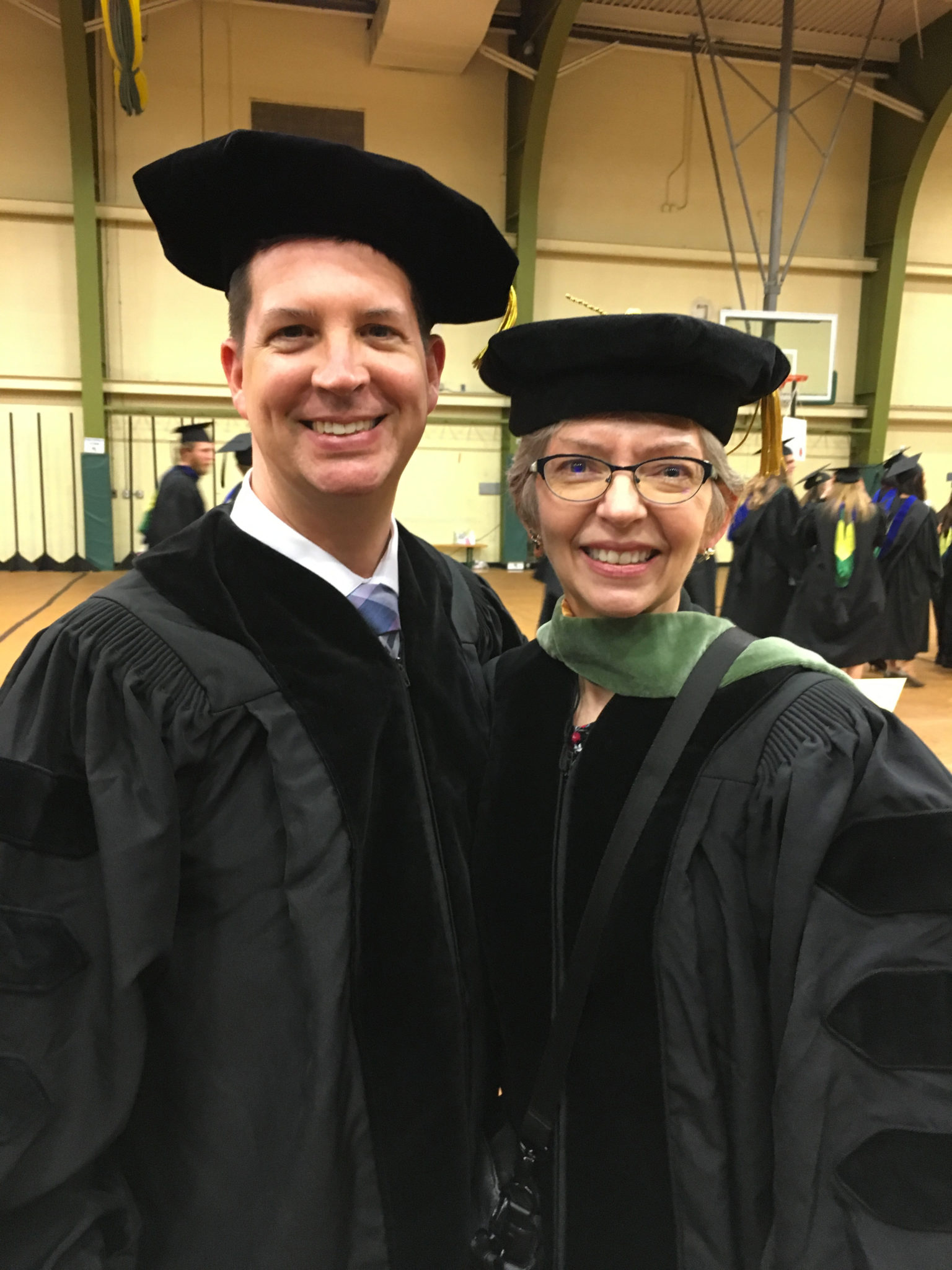Story by Annie Peyton
 “After 10 years of working as an occupational therapist, I wanted to explore new adventures,” shared Bill Roberts.
“After 10 years of working as an occupational therapist, I wanted to explore new adventures,” shared Bill Roberts.
A native of Texas, Roberts earned his bachelor’s degree in occupational therapy in San Antonio, Texas. After working in a pediatrics clinic and a school-based setting in southern California, Roberts had an itch to do something different. Upon exploring volunteer opportunities, he made a move across the globe to South Asia. However, when he moved to Sir Lanka in 2011 to help implement a community-based rehabilitation program, he wasn’t expecting this volunteer opportunity to change the course of his career.
Laying the foundation for doctorate work
Sri Lanka had an occupational therapist shortage, and Bill had ten years of experience. Surely, he thought, he would be able to apply his skills to the local population just as he had in the United States. However, what he experienced challenged his preconceptions and set him on a path to understanding how culture impacts occupational therapy.
Roberts spent 18 months in Sri Lanka where he volunteered for a local community-based rehabilitation program. It didn’t take long, however, for Roberts to realize that the expertise he had developed in the United States didn’t always translate to this unique culture with its own set of rules, expectations and resources.
“I noticed that my technical and theoretical skills would only go so far within a context that I couldn’t really know altogether,” says Roberts. “I realized that local Sri Lankan occupational therapists were so much more adept at serving the needs of that population because they knew all the ins and outs of how the government worked, what resources were available and everything about that culture.”
Roberts also taught several occupational therapy classes at a Sri Lankan university where he felt that his effectiveness as a teacher was limited by his relative inexperience with the local culture. “I really became interested in how people like me, who want to teach outside of their context, go teach someone somewhere else,” he recalls.
This experience led Roberts to seek mentorship from Barb Hooper, an expert in occupational therapy education and curriculum design and his path was forged to pursue a Ph.D. degree in Occupation and Rehabilitation Science at Colorado State University. Hooper recalls, “From my first conversation with Bill about possibly mentoring his Ph.D. research, I had a sense listening to his experience and emerging passion for education in cultural context that he would do novel and important research.”
A Fulbright grant to study occupational therapy in Trinidad and Tobago

Roberts’ travels didn’t end with his trip to Sri Lanka. He returned from yet another international trip last fall. This time, he spent ten months in Trinidad and Tobago, a twin-island nation in the Caribbean, where he was collecting data for his dissertation. Roberts’ research, funded by a prestigious Fulbright student grant, sought to understand how an occupational therapy program in a country with few resources could be optimally designed with its unique culture and population in mind. Trinidad and Tobago’s University of the Southern Caribbean, with a new master of occupational therapy program, provided just the setting.
Roberts’ decision to conduct his research at USC was a deliberate one. “I chose to study that program because it was new, it was in a place where the profession is emerging and, most specifically, because they were trying to create a program that was relevant to Trinidad and Tobago.”
Roberts notes, “All of USC’s resources — their models, their textbooks, their articles — are all from the United States, Canada and the United Kingdom.” This importation of resources, Roberts says, can create a “contextual mismatch” in which the materials used to teach students do not necessarily apply to the local people and contexts.
For example, Roberts says that it is normal according to U.S. textbooks for children to be able to write their ABCs somewhere around kindergarten age. “That was way off,” he discovered after speaking with an occupational therapist and instructor at USC. “Parents in Trinidad and Tobago have really high expectations of their kids. I was told that they have to be writing letters, writing everything, by the time they’re in preschool, so if we went off these standards the parents and the teachers would laugh us out the door.”
Contextual mismatches like this one may create additional challenges for Trinidadian occupational therapists and USC’s students. “They have to figure out how they can adapt or use materials in a context that is very different from the one in which the materials were created,” says Roberts. “It requires informal work where students and educators are making their own connections.”
One way that USC’s students make that connection, according to Roberts, is through service learning, a form of experiential learning that ties academic objectives to community service. “They go out to sites where there are no occupational therapists, but there could be. They get out there in their very first semester,” he says. “That service learning helps them adjust what they are learning to the local context.”
As part of his time at USC, Roberts collaborated with the director of the program, Lesley Garcia, to design and teach a community-based occupational therapy class to USC master’s students that incorporated this service learning element. The process required Roberts to take what he knew about occupational therapy and make it relevant to Trinidad and Tobago’s unique cultural context, a challenging task in a country in which he was a visitor.
“I think it’s about knowing what you don’t know,” Roberts muses. “In those classes I would really defer to the students, because they know their communities and the service learning sites where they work. I would have to ask a lot of questions and trust that they knew what they were talking about.”
Looking back and looking forward
Back in the states, Roberts reflects on the people he worked with in Trinidad and Tobago and his admiration is evident. “Because occupational therapy is so small there, they are pushing incredibly hard to have it be recognized; they’re in malls doing fall prevention, they’re doing dyslexia workshops, they’re on the radio and on TV. They have a lot more heavy lifting than we do here, because here we are able to take advantage of systems that are already in place. They’re hustling, hustling, hustling. They’re amazing.”
Roberts also reflects on the importance of practicing cultural humility. “I have certain ways that I am comfortable teaching and certain ways that I am comfortable learning. And it is really because of my experience, my background and my culture,” he says. “We sometimes think that all of our tenets of occupational therapy are universal. I think that may not be true, and it is healthy and respectful to at least question that idea of universality and to facilitate the questioning of it.” Hooper shares, “Bill has opened a new door in occupational therapy education research. He has identified some of the strategies that educators, who rely on other cultures’ materials, use to ground learning in and for their local context. The number of these educators worldwide is growing rapidly.”
Life-time relationships

In August, Roberts graduated with his Ph.D. degree in Occupation and Rehabilitation Science. When asked about his more rewarding experiences as a Ph.D. student he shared, “It has been the people that I have met, both fellow masters and Ph.D. students. I feel that I have established some life-time relationships that have been really close, sometimes under some intense circumstances.”
“On the academic side,” continued Roberts, “it was being able to go to Trinidad and Tobago for 10 months and establish connections there while completing my dissertation study.” Also, relationships with faculty at CSU were important to him. He commented, “I enjoyed the informal but rigorous nature of our department and other departments in the university.”
Roberts has accepted a tenure-track assistant professor position in the Department of Occupational Therapy at the University of Texas – El Paso. “So, I am returning back home,” shared Roberts. “This will give me an opportunity to not only teach but apply my research to a border community that is positioned at the intersection of multiple cultures and contexts.”
The Department of Occupational Therapy is part of CSU’s College of Health and Human Sciences.